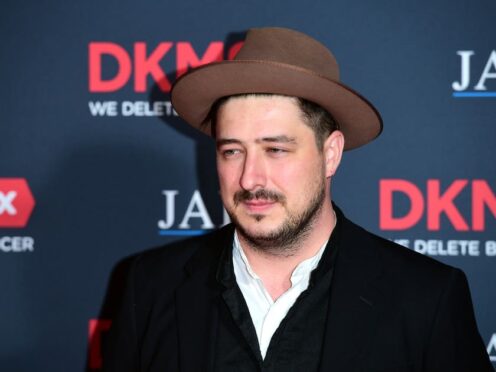Marcus Mumford, the frontman of folk rock band Mumford & Sons, has revealed he was sexually abused as a child.
Mumford, 35, found fame with the Grammy Award-winning band, whose hits include I Will Wait and Little Lion Man.
For the first time Mumford has publicly revealed he was sexually abused when he was six years old.
In an interview with GQ magazine, Mumford spoke about his song Cannibal, which was released earlier this year and opens with the line “I can still taste you and I hate it. That wasn’t a choice in the mind of a child and you knew it.”
He told the magazine: “Like lots of people – and I’m learning more and more about this as we go and as I play it to people – I was sexually abused as a child.”
Mumford added: “Not by family and not in the church, which might be some people’s assumption. But I hadn’t told anyone about it for 30 years.”
Mumford’s parents are English but moved to California in the 1980s to work with Vineyard Churches, an evangelical church with musical ties.
He has been married to British actress Carey Mulligan since 2012 and the couple have two children.
The singer went on to explain that he had not told his mother about the experience until recently, after failing to realise he had not previously mentioned the incident to her.
After playing his mother Cannibal for the first time, Mumford said she came back to him a couple of days later and asked him exactly what the track was about, to which Mumford replied: “‘It’s about the abuse thing.’
“She was like, ‘What are you talking about?’ So once we get through the trauma of that moment for her, as a mother, hearing that and her wanting to protect and help and all that stuff, it’s objectively f****** hilarious to tell your mum about your abuse in a f****** song, of all things.”
After the conversation with his mother, Mumford told GQ he decided Cannibal should be the first song on his self-titled solo album.
“I felt like it had to go first,” he said.
“I started sort of apologising for it, in my head. But it’s like: That’s not right, either.”
Mumford went on to write Grace, a song about the conversation he had with his mother, and decided it would place as the second track on the album.
After Mumford & Sons formed in London in 2007, the band went on to headline Glastonbury Festival in 2013 and in the same year won the Brit Award for best British group.
They also secured two number one albums with Babel and Wilder Mind.
